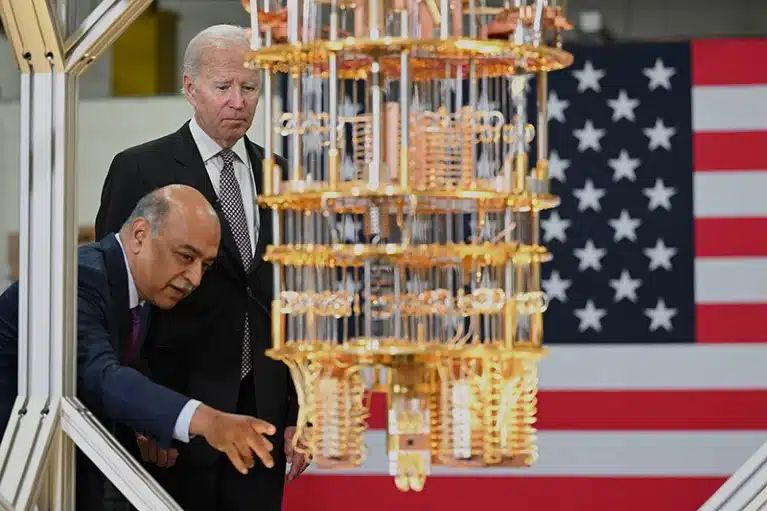According to the findings of experiments conducted by researchers at IBM, it is projected that quantum computers may offer practical, real-world applications in approximately two years.

Four years ago, Google physicists have claimed that their quantum computer could surpass classical machines, even though limited to a specialised calculation devoid of practical implications. Now IBM (International Business Machines Corporation) is saying that the quantum computers will soon beat ordinary ones in useful tasks like material properties and particle interactions.
The researchers at IBM have simulated the behaviour of magnetic material on their Eagle quantum processor. Significantly, they overcame the challenge of quantum noise, which is the primary hurdle for this technology as it introduces calculation errors and achieves reliable results.
Uniquely quantum
Quantum computers use quantum phenomena like superposition and entanglement. Qubits are quantum bits in a superposition and can be entangled. The researchers have encoded qubits in superconducting circuits. The longevity of the qubit quantum state is vital for efficient quantum computing, leading to significant engineering efforts by the team to increase qubit lifetimes. The team have measured qubit noise, accounting for predictable patterns due to positioning and fabrication imperfections. Extrapolating from noise-free conditions, they conducted calculations on all 127 qubits of Eagle, surpassing previous quantum computing experiments with 60 processing steps.
Error Approach
As validated by the results, the researchers concluded that their strategy focused on error mitigation rather than correction. However, in the long run, both IBM and other companies aim to transition to quantum error correction, which will necessitate a significant increase in the number of qubits for each data qubit. The researchers doubted noise mitigation’s potential and believed that only quantum error correction could achieve calculations surpassing classical supercomputers’ capabilities.
The researchers have planed to launch the 1,121-qubit Condor chip, surpassing Eagle’s capabilities. Additionally, they have utility-scale processors in development with up to 4,158 qubits. Their goal is to build 100,000-qubit machines capable of fully error-corrected algorithms by 2033, requiring the resolution of significant engineering challenges.
Reference: Kim, Y. et al. Nature 618, 500–505 (2023). Daley, A. J. et al. Nature 607, 667–676 (2022). doi: https://doi.org/10.1038/d41586-023-01965-3






